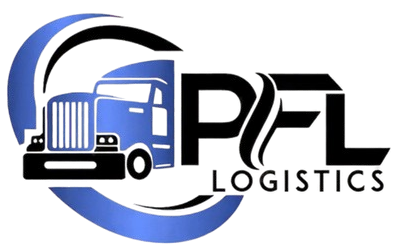
The automotive industry relies on complex supply chains to ensure the timely delivery of parts and finished vehicles across global markets. Logistics plays a critical role in maintaining production schedules, reducing costs, and ensuring efficiency. However, the industry faces several challenges, from supply chain disruptions to rising costs and evolving regulatory requirements. This article explores the key logistics challenges in the automotive sector and innovative solutions that are transforming the industry.
Challenges in Automotive Logistics
1. Supply Chain Disruptions
Global Dependency:Automakers source parts from multiple countries, making supply chains vulnerable to geopolitical issues, trade restrictions, and natural disasters.
Semiconductor Shortages:The global chip shortage disrupted vehicle production, with a reported 10.5 million fewer vehicles produced in 2021 (Source: AutoForecast Solutions).
COVID-19 Impact: Pandemic-related factory shutdowns and port congestion caused severe delays, affecting production schedules and inventory levels.
2. Rising Costs and Inflation
Fuel Price Volatility: In 2022, fuel costs for logistics operations surged by over 50%, increasing transportation expenses for manufacturers (Source: International Energy Agency).
Raw Material Costs: Prices for essential materials like steel and aluminum have risen sharply, impacting production and supply chain costs.
Labor Shortages: A 2023 report from the American Trucking Association highlighted a shortage of over 80,000 truck drivers, leading to higher shipping costs.
3. Just-in-Time (JIT) Model Challenges
Many automakers rely on JIT manufacturing, minimizing inventory but making them highly sensitive to disruptions.
Any delay in parts delivery can halt production lines, leading to financial losses. For example, Toyota temporarily shut down production in Japan in 2022 due to supply chain delays.
4. Regulatory Compliance and Sustainability Goals
Emissions Regulations: Stricter emission standards require logistics providers to adopt greener technologies.
> Customs and Tariffs: Compliance with international trade regulations adds complexity to cross-border logistics.
> ESG Requirements: Companies are under pressure to reduce carbon footprints and improve sustainability in supply chains.
Solutions Transforming Automotive Logistics
1. Digitalization and AI-Driven Supply Chains
Real-Time Tracking: AI-powered platforms provide real-time visibility into shipments, reducing delays and improving efficiency.
Predictive Analytics: AI forecasts demand and potential disruptions, allowing automakers to adjust logistics strategies in advance.
Automated Warehousing: Robotics and automation streamline inventory management, reducing errors and improving fulfillment speeds.
2. Diversification of Suppliers and Nearshoring
Multi-Sourcing Strategy: Automakers are reducing reliance on a single supplier by working with multiple vendors.
Nearshoring: Companies are shifting production closer to key markets to mitigate global disruptions. For example, BMW and Tesla have expanded production facilities in Mexico and the U.S.
3. Electric and Autonomous Vehicles in Logistics
EV Fleets: Logistics companies are investing in electric trucks to reduce carbon emissions. By 2030, over 30% of commercial vehicles are expected to be electric (Source: Bloomberg NEF).
Autonomous Vehicles: Self-driving trucks and delivery robots are being tested to improve efficiency and reduce labor costs.
4. Blockchain for Enhanced Transparency
Secure Transactions: Blockchain technology ensures transparent and tamper-proof records for shipments and supplier transactions.
Counterfeit Prevention:It helps verify the authenticity of automotive parts, reducing the risk of counterfeit components entering the supply chain.
5. Sustainable Logistics Practices
Green Warehouses: Companies are adopting solar-powered and energy-efficient warehouses.
Optimized Route Planning: AI-driven route optimization reduces fuel consumption and delivery times. Recyclable Packaging: Automakers are investing in sustainable packaging to minimize waste.
Future Trends in Automotive Logistics
5G Connectivity: Faster data transmission will enhance real-time supply chain tracking and vehicle-to-infrastructure communication.
AI-Powered Demand Forecasting: AI will play a larger role in predicting demand fluctuations, reducing overstock and stockouts.
Hyperloop and Advanced Freight Transport: Emerging technologies like Hyperloop could revolutionize the transportation of auto parts with ultra-fast delivery speeds.
Partner with PFL-Logistics Group for your Supply Chain Challenges
PFL-Logistics is a leading integrated logistics and shipping solutions provider with a strong global presence. With expertise in supply chain management, digital logistics, and multimodal transportation, PFL-Logistics Group offers tailored logistics solutions to support the automotive industry. Get in touch with us today to optimize your automotive logistics!

